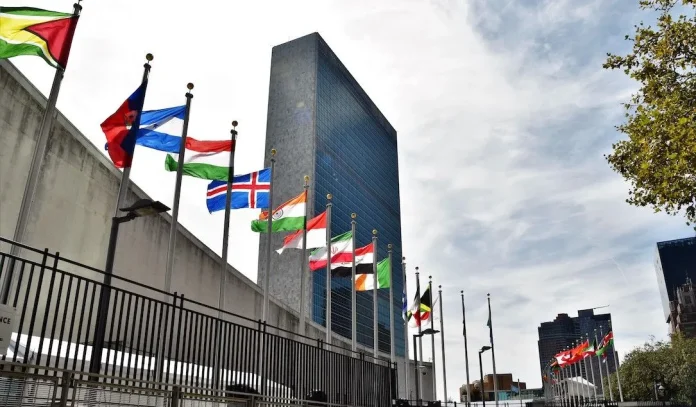The UN Ad Hoc Committee on Cybercrime approved on Thursday a treaty aimed at combating cybercrime, Euractiv reported.
The treaty aims to boost global efforts to combat cybercrime, especially in areas such as child sexual abuse and money laundering. However, the treaty has faced opposition in the face of NGOs and big tech, which fear the treaty might not serve properly as a tool for state surveillance.
The Convention on Combating Cybercrime originated with Russia in 2017 and progress has come to the text since then, despite the opposition of the European Union and the United States, however, the negotiations have taken three years after delays because of the COVID-19 pandemic. The convention is now set to go to a vote at the UN General Assembly in the autumn. Presumably it should enter into force once it has been ratified by at least 40 UN member states.
Deputy Director of Human Rights Watch Deborah Brown warned the convention’s adoption by UN member states comes “despite stark warnings,” from leading human rights experts, the UN’s Office of the High Commissioner for Human Rights, over 100 NGOs, and industry. According to her, the treaty was effectively a legal instrument of repression, since it may serve to stop journalists, activists, LGBT, free thinkers and others across borders.
Among the concerns of possible abuse by various regimes is also a provision allowing a State to request from foreign authorities any electronic evidence of an offence if the offence is punishable by a minimum of four years’ imprisonment under domestic law.
Conversely, Iran had sought to remove several provisions protecting fundamental freedoms before Thursday’s adoption of the convention, but their efforts came to a decisive rejection in a series of overwhelming votes. Iran sought to remove the following paragraph: “Nothing in this Convention shall be interpreted as permitting suppression of human rights or fundamental freedoms,” such as “freedoms of expression, conscience, opinion, religion or belief,” but Iran’s position faced opposition from 102 countries, while only 23 supported.
Russia, in turn, shared “the position of the Egyptian, Iranian, Pakistani, Vietnamese, and Mauritanian delegations that the treaty is oversaturated with human rights safeguards,” noting that these safeguards “would lead to an excessive use by certain states of the opportunities to reject requests for legal assistance.”
After years of negotiations, the Member States represented on the Ad Hoc Committee on Cybercrime unanimously supported the text. In addition, all the European Union member states are already parties to the 2001 Budapest Convention on Cybercrime, with the exception of Ireland, which has signed but not yet ratified it.
